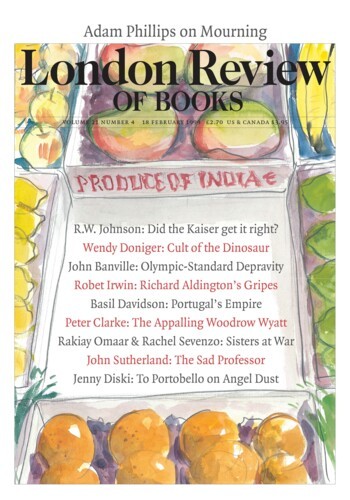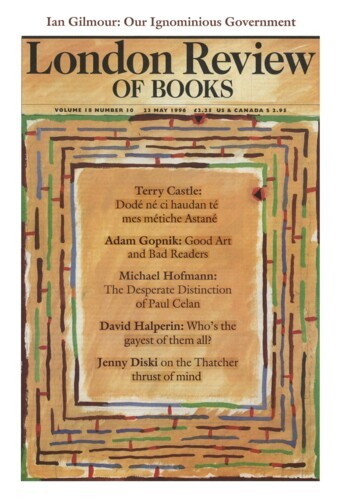African History without Africans: Portugal’s Empire
Basil Davidson, 18 February 1999
In Canto Four of Camões’s 16th-century epic, as Vasco da Gama and the men of his fleet prepare to embark on their conquest of the Golden East, ‘an old man of venerable appearance’ steps down to the quayside of Belem. Solemnly, if fruitlessly, he warns against their enterprise of imperialist piracy:‘




